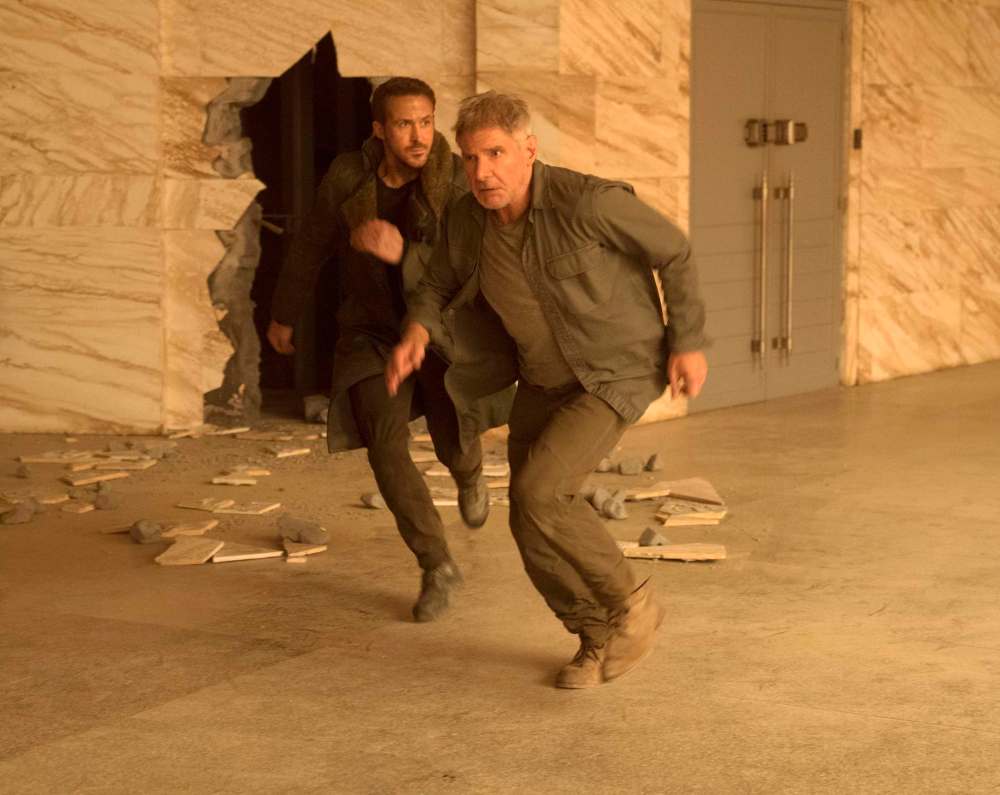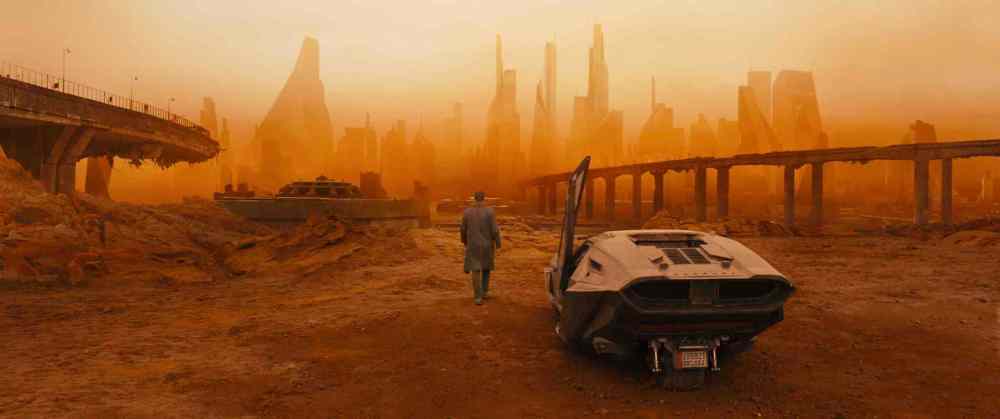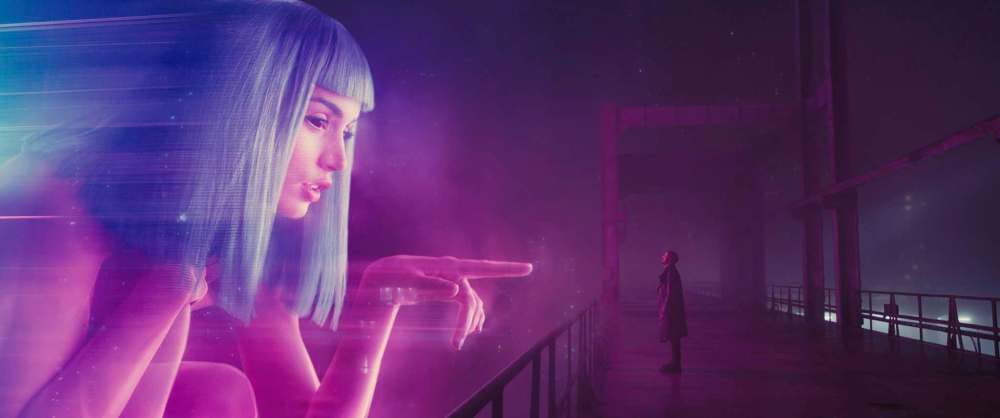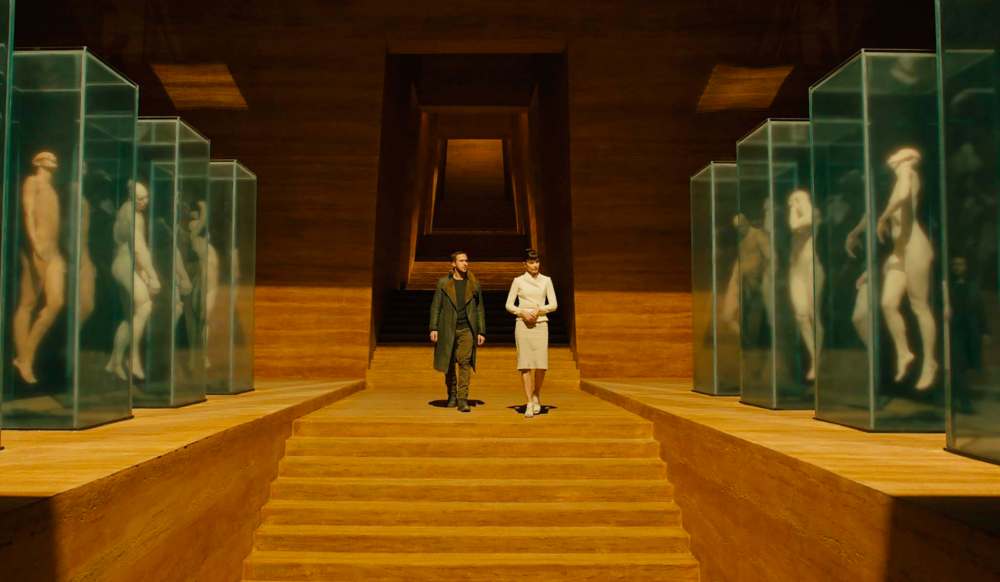Grunge match
Blade Runner sequel stays true to the slow-moving, thought-provoking 1982 film that spawned it
Advertisement
Read this article for free:
or
Already have an account? Log in here »
To continue reading, please subscribe:
Monthly Digital Subscription
$0 for the first 4 weeks*
- Enjoy unlimited reading on winnipegfreepress.com
- Read the E-Edition, our digital replica newspaper
- Access News Break, our award-winning app
- Play interactive puzzles
*No charge for 4 weeks then price increases to the regular rate of $19.00 plus GST every four weeks. Offer available to new and qualified returning subscribers only. Cancel any time.
Monthly Digital Subscription
$4.75/week*
- Enjoy unlimited reading on winnipegfreepress.com
- Read the E-Edition, our digital replica newspaper
- Access News Break, our award-winning app
- Play interactive puzzles
*Billed as $19 plus GST every four weeks. Cancel any time.
To continue reading, please subscribe:
Add Free Press access to your Brandon Sun subscription for only an additional
$1 for the first 4 weeks*
*Your next subscription payment will increase by $1.00 and you will be charged $16.99 plus GST for four weeks. After four weeks, your payment will increase to $23.99 plus GST every four weeks.
Read unlimited articles for free today:
or
Already have an account? Log in here »
Hey there, time traveller!
This article was published 06/10/2017 (2966 days ago), so information in it may no longer be current.
Now that the sequel Blade Runner 2049 is with us, please note director Ridley Scott’s original Blade Runner, which came out in 1982, was a bit of box-office bomb.

It is important to highlight this fact going in, because the sequel shares many of the same attributes of its progenitor that could challenge an audience.
Its pace is ponderous, certainly compared to the outsize action and machine-gun editing of most contemporary thrillers. Instead of a thrill a minute, it drips with wet, smoky atmosphere. (With a running time of two hours, Blade Runner seemed longer than it was. The sequel really is longer by about 45 minutes.)
Its hero is not conventionally heroic. Harrison Ford’s noir cop Rick Deckard is a “blade runner” — a hunter of quasi-humans — which sounds like a cool way of avoiding the more accurate term “killer.”
Finally, it’s a movie where the ideas put forth are taken very seriously. The first film was about engineered humans — dubbed “replicants” — coming to Earth determined to find a remedy for their cruelly short four-year life spans. Hence, it was a movie that took a hard and heavy look at mortality and memory in a world where one is fragile and the other is commodified.
The sequel follows suit. That’s a good thing.

The question arose in Blade Runner that Deckard himself might be a replicant, posed by his lover Rachel (Sean Young). That question isn’t up for debate when it comes to K (Ryan Gosling), a blade runner in the Los Angeles police force with a somewhat more difficult job.
The new breed of replicants comes equipped with more human feelings, open-ended lifespans and little inclination to launch murderous rebellions in the vein of the original movie’s Nexus-6 fugitives. But a few revolutionary-minded replicants still are a source of potential trouble, so K’s superior officer Joshi (Robin Wright) duly sends K out to find them and eliminate them.
But K’s investigation of one such replicant, Sapper Morton (Dave Bautista) leads to a discovery that Joshi realizes could have cataclysmic ramifications if revealed. K is ordered to prevent that from happening, undertaking an investigation that takes him into the high-tech layer of replicant industrialist Niander Wallace (Jared Leto), a god-complex psychotic intent on defying limits to the creation of replicants.
Wallace assigns his own murderous replicant assistant Luv (Sylvia Hoeks) to shadow K on his manhunt, which ultimately takes K into the hideout of Deckard himself.

Like the first film, the sequel, scripted by Hampton Fancher and Michael Green, offers a bleak view of humanity. Relationships are either militaristic or commodified, as in K’s romantic partner Joi (Ana de Armas), a hologram that seems to have more more human feeling than any of the humans in its midst.
Considering Blade Runner’s original director Ridley Scott and his recent fumbles with the Alien franchise, one should be grateful the baton was passed here to Quebecois director Denis Villeneuve. He manages quite nicely with the requirements of creating grand, grungy spectacle.
More importantly, his cerebral slow-burn style is the perfect complement to the Blade Runner universe. In his more artistic output (Polytechnique, Incendies, Enemy) or even when working in the context of thrillers such as Prisoners or Sicario, Villeneuve invariably searches beneath surfaces to explore the deeper dynamics in play in an ongoing investigation of human nature under extreme duress.
There is only one thing truly missing from the original equation. No one in the sequel can match Rutger Hauer’s inspired, poetic, dangerous eccentricity in the role of replicant Roy Batty.

Twitter: @FreepKing

In a way, Randall King was born into the entertainment beat.
Our newsroom depends on a growing audience of readers to power our journalism. If you are not a paid reader, please consider becoming a subscriber.
Our newsroom depends on its audience of readers to power our journalism. Thank you for your support.





